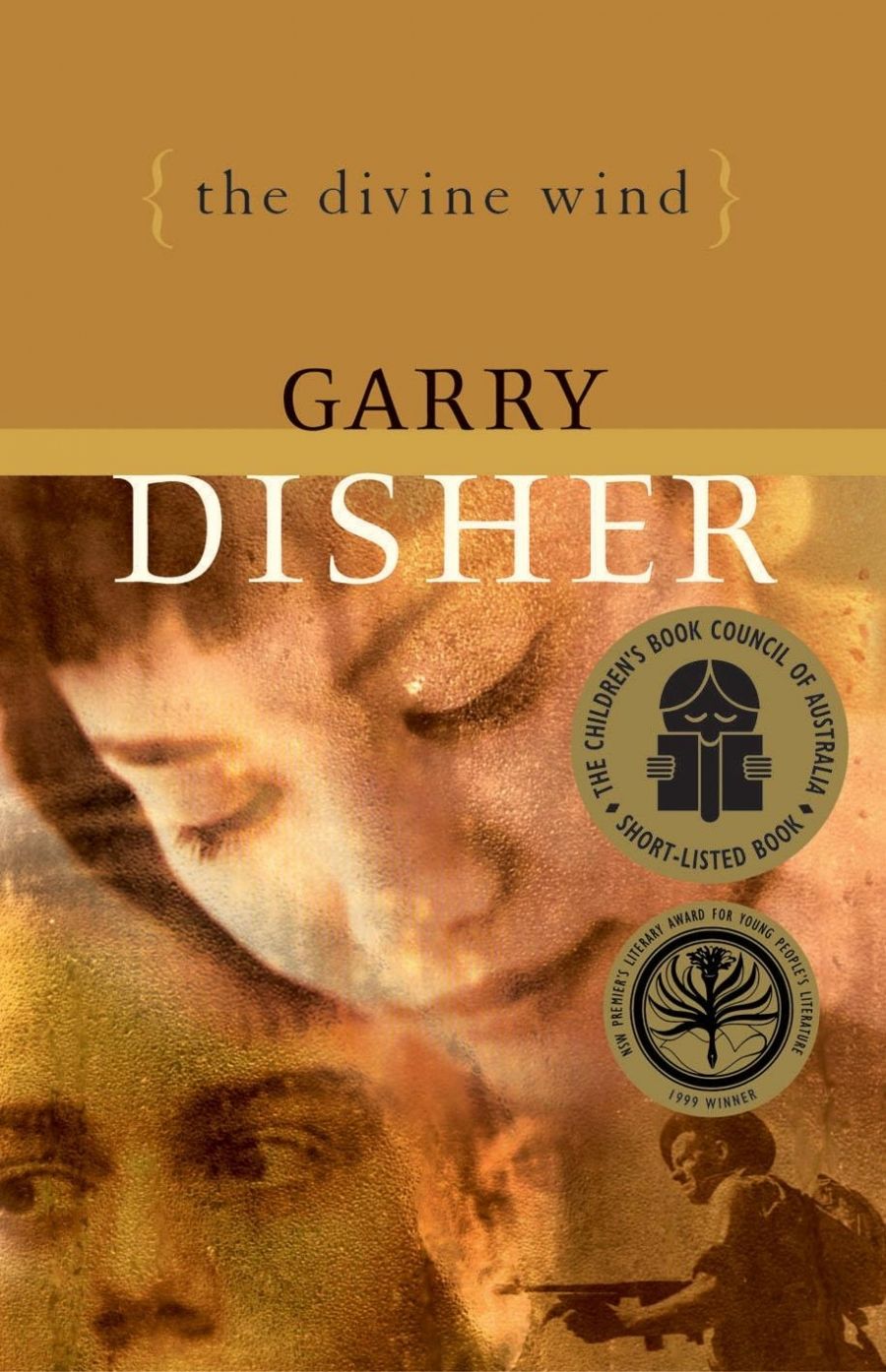
- Free Article: No
- Contents Category: Fiction
- Review Article: Yes
- Article Title: Parallel times
- Online Only: No
- Custom Highlight Text:
Ten years ago historical novels were an unwanted rarity in Australian children’s publishing. Instead, there was a vogue for time-slip novels where a contemporary kid went travelling back into the past, as though history would be too hard for younger readers to handle without some sort of tour guide.
- Book 1 Title: The Divine Wind
- Book 1 Biblio: Hodder Headline, $14.95 pb, 151 pp
- Book 1 Readings Link: https://www.booktopia.com.au/the-divine-wind-garry-disher/book/9780734419316.html
Now Disher has turned his attention to the period leading up to World War II, once again developing some provocative parallels between past and present. The Divine Wind begins with a time of innocence. Four kids roam happily around Broome – the narrator Hart Penrose and his sister Alice; Mitsi Sennosuke, born in Australia to Japanese parents; and Jamie Kilian, son of a government official.
Through Hart, Disher creates an aching nostalgia for a moment when race and class seemed irrelevant, a very different kind of nostalgia from the One Nation brand that pictures Australia as uncomplicatedly Anglo until ten minutes ago. Indeed, the only discordance in this idyllic time comes from Hart’s mother, yearning for a lost England and disapproving of her children’s friendships with the ‘Malays, Manilamen and Koepangers’ who work on their father’s pearling luggers.
But there are more troubles to come. Even before the war sets up barriers between the Penroses and the Sennusukes, Mitsi has turned away from Hart, just as Alice turns away from her station-owner lover Carl, after both men fail to defend the rights of Aboriginal people. At the midpoint of the novel Disher offers a telling insight into the domino effect of racism through Major Morrissey, who announces, ‘Your Abo is unreliable. He’ll collaborate. He’ll guide the Japs through the bush.’ (‘Rubbish,’ Alice says in reply.)
Disher has an apparently effortless knack for embodying broad social forces in very individual characters and situations. I kept turning the pages to find out what effect the war would have on Han and Mitsi: it was only after I’d closed the book that I started to see their relationship as a parable about society’s insiders and outsiders. Garry Disher is first and foremost a storyteller but, like all good storytellers, he centres his stories around grand and enduring themes.
While I was consistently engaged by Disher’s tale, I was sometimes puzzled by the way in which he chose to tell it. Where Paul’s voice in The Bamboo Flute was urgent and immediate, Hart is looking back across his childhood from a more adult point of view, which inevitably has a distancing effect. And, even considering that Disher is recreating the speech patterns of the 1940s, Hart’s language is often so formal that it borders on pompous: would a young man in his early twenties really say something like, ‘he also hated the prolongation of Alice’s departure’?
Still, these lapses in tone are offset by some exuberantly accurate descriptions – ‘The papers on Mr Kilian’s desk lay exhausted from the humidity’ – and in general Hart’s wry melancholy matches the events he is recording. ‘You could say that this is a story about friendship’, he tells us but the pressures of history come close to destroying the friendships between Hart, Alice, Mitsi, and Jamie. The novel ends on a note of guarded hope or realistic caution. ‘It won’t be easy. We may not make it.’


Comments powered by CComment